
The Relationship Between Muscular Strength and Longevity
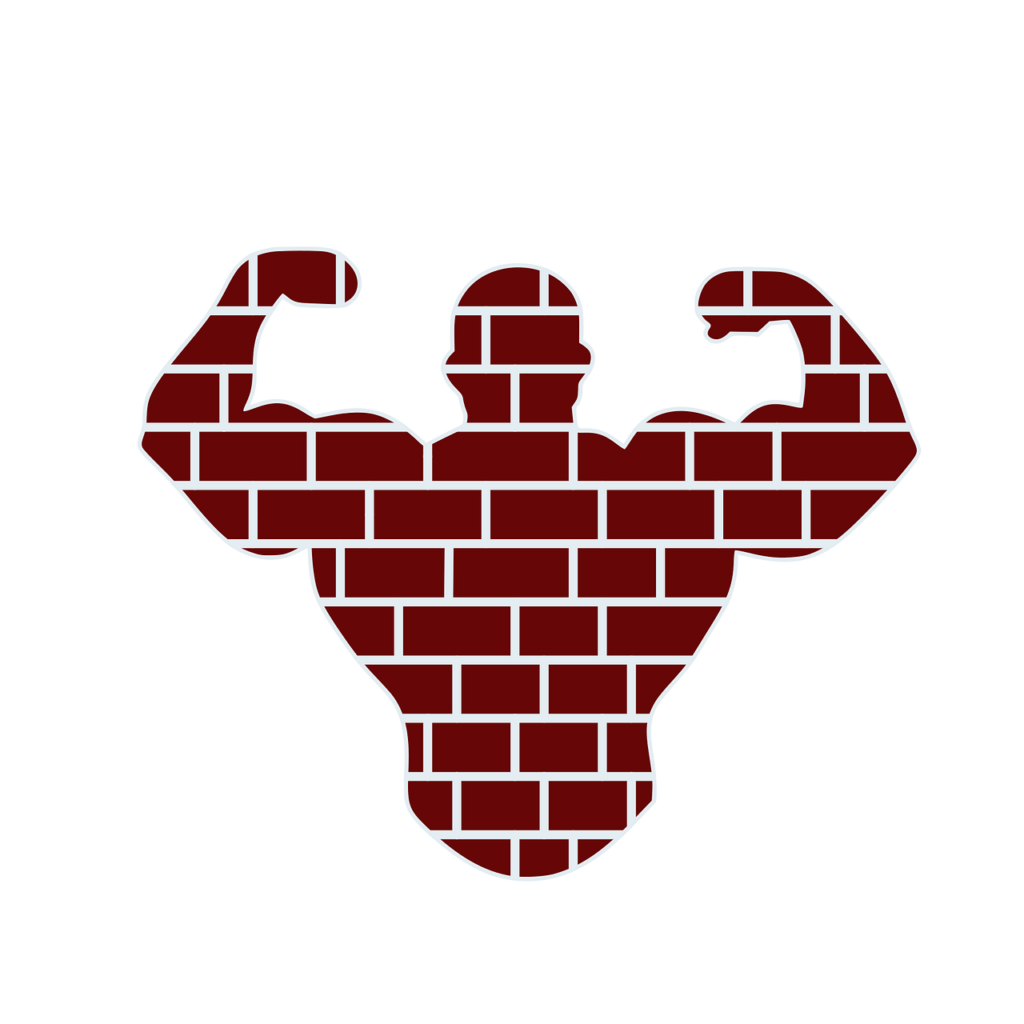
Muscle the Key to Longevity. So then, if I were to ask you what the most important factors and predictors of living a long life are. So then, what kinds of things come to mind? Genetics? Sure, they play a role (much less than you might think, though). But what about lifestyle factors?
Is weight management—especially belly fat—on the tip of your tongue? How about nutrition? Gotta eat your fruits and veggies, no? Social support and connectedness? Surely. Likewise, stress, don’t you think? Oh, and exercise, especially good ol’ cardio, right?
Muscle Strength and Longevity
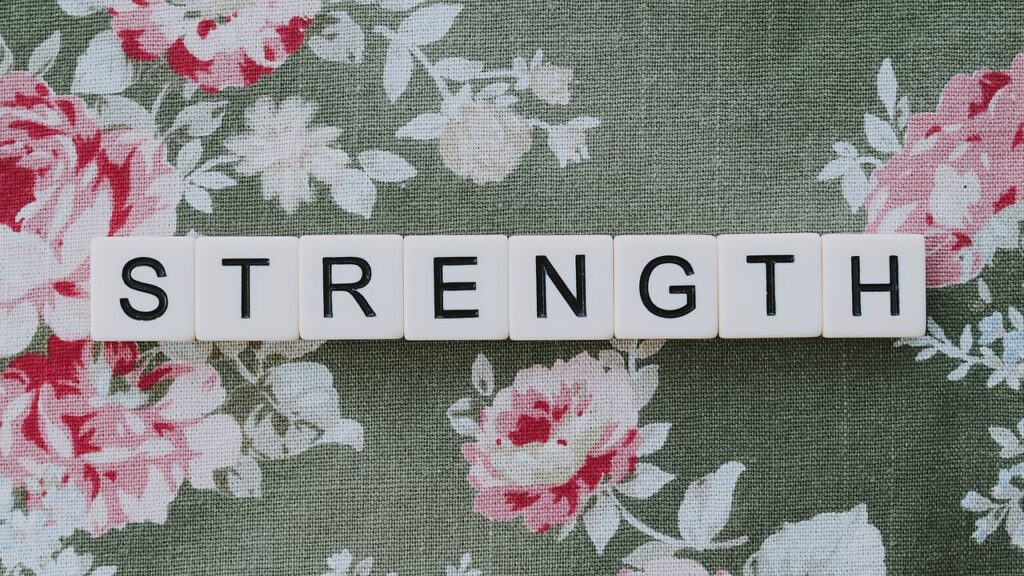
Muscle the Key to Longevity. What about muscle strength? Would that have even been on your radar had it not been for the title? I suspect that most people would be quite surprised to learn. That muscle strength is one of the strongest predictors of how long you will live.!!!
Muscle Strength

“Only the strong survive…” It’s such a beautiful title. And it’s so much more than a play on the “survival of the fittest” a moniker deeply rooted in Charles Darwin’s evolutionary theory. It’s not just a play on words either. It’s a literal translation of one of the most important factors dictating how long and how well you live your life: Muscle Strength. Yes, you read that correctly. If you don’t believe it, wait ‘til I reveal all the fascinating, if not surprising, ways that building (and maintaining) strong, healthy muscles helps you kick butt and take names through a long, productive, and meaningful health span.
A Serious Review Study

Muscle the Key to Longevity. A seminal review study, which involved 8,762 male participants who were followed nearly 19 years (it ended up involving 165,251 person years of observation), published in the British Medical Journal, found that “muscular strength is inversely and independently associated with death from all causes and cancer.” And that was even after taking into consideration other confounding factors like cardiorespiratory fitness.
I’m not just talking about statistical significance. I’m talking about game-changing significance. For example, men in the lowest third of muscle strength—which was quantified by bench press (upper body) and leg press (lower body) performance—had a 50% greater rate of death during the study period compared to men in the middle and upper thirds of muscular strength. What’s more, low muscular strength was associated with an 83% increased risk of death from cardiovascular disease and 45% increased risk of death from cancer compared to stronger men.
Since that remarkable study was published, even more evidence has mounted highlighting this important connection between muscular strength and lifespan. For instance, a recent study published in the journal Medicine and Science in Sports and Exercise, which included 4,449 participants (≥ age 50) from the National Health and Nutrition Examination Survey, found that death from all causes was 2.66 TIMES higher in folks with low muscle strength.
Systematic Review and Meta Analysis

Muscle the Key to Longevity. Perhaps most impressive are the findings from a recent systematic review and meta-analysis, which analyzed data from 38 studies involving 1,907,580 participants—yes, that’s nearly 2 MILLION people. The researchers found “higher levels of upper- and lower-body muscular strength are associated with a lower risk of mortality in adult population, regardless of age and follow-up period.”
We’re talking about a 30% reduced risk of death overall. And believe it or not, women with higher levels of muscular strength had a 40% reduced rate of all-cause mortality.
I know I’m throwing a lot of numbers at you. To sum things up, check out what Dr. Keith Baar, Professor at the Department of Physiology and Membrane Biology in the UC-Davis School of Medicine, had to say in an interview with Dan Pardi on humanOS radio:
Dr. Keith Baar Comments
Muscle the Key to Longevity. “The big thing that we know is that if you’re in the strongest third of the population, you’re two-and-a-half times more likely to make it to your hundredth birthday, and that’s if you’re in the strongest third of the population at midlife. If you’re in your 50s and you’re one of the strongest 50-year-olds, you’re two and a half times more likely to make it to 100. In humans, the number one correlate with longevity seems to be muscle mass and strength because basically the stronger you are the more you can survive certain diseases.”
But here’s something even more important: Muscular strength doesn’t just increase lifespan. Having strong, healthy muscles enhances health span.
What is Health Span? Great Question.
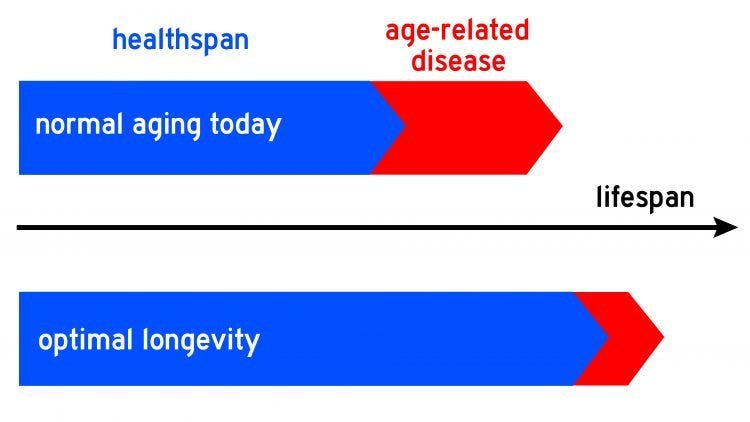
Muscle the Key to Longevity. Researchers define health span as “the period of life free of major chronic clinical diseases and disability.” It’s based on the premise that life can be roughly divided into two phases: a period of relatively healthy aging (health span) and a period of age-associated disease and disability.
Another way to think about health span is optimal longevity, which means living long with an even greater interest in living well. In other words, increasing health span isn’t just about surviving longer. It’s about living longer. This is an important distinction to make. Even though medical advances have resulted in an increased average lifespan, many would argue this is the result of folks surviving longer with age- and lifestyle-associated diseases and disabilities—rather than by increasing health span.
Healthy Muscles Optimize Longevity
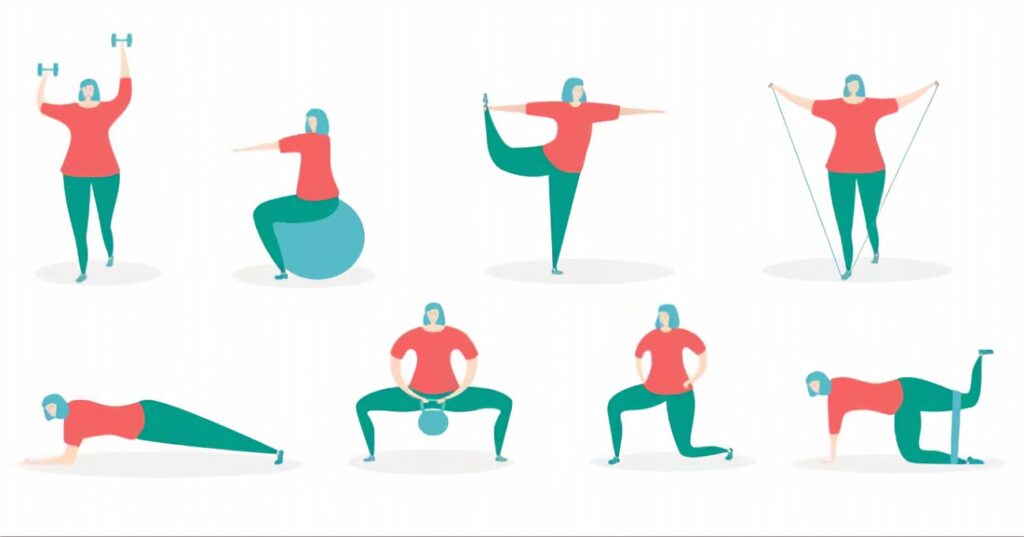
Muscle the Key to Longevity. How does muscular strength enhance health span and optimize longevity? To answer that question, we need look no further than the health-related benefits of resistance training—the most effective tool for enhancing muscular strength.
You may be surprised when you find out that lifting weights does more than increase strength and muscle mass—two benefits it can markedly and reliably improve. And my hope is you’ll also recognize that pumping iron isn’t just for athletes, bodybuilders, and the like. So then, let me put it in no uncertain terms: Resistance training is essential for EVERYONE regardless of age.
The Importance of Strength Training as we Age
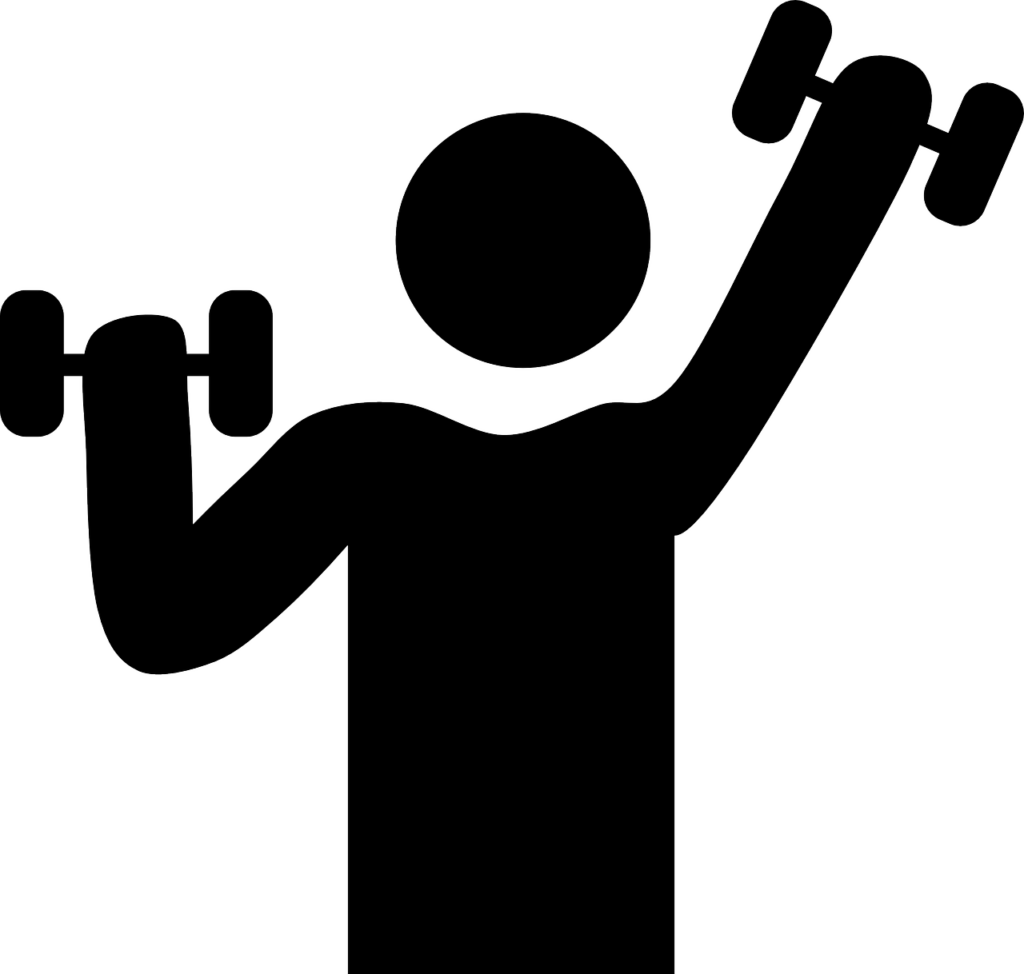
Muscle the Key to Longevity. One of the ways to combat physical age-related concerns — plus maintain range of motion, strength, and balance — is to incorporate consistent strength training into your weekly routine. So then, strength training can benefit older adults by:
Improving quality of life.
Older adults who participate in a regular resistance training routine often see improvements in their psychosocial well-being.
Increasing bone density.
When you strength train, you’re putting stress on your bones from the movement and force patterns, which leads bone-forming cells to jump to work. This creates bone that is stronger and denser. Ladies, this is great to combat osteoporosis, that many of you get especially after the menopause.
Increasing muscle mass.
More muscle means more strength, better balance, and an increased metabolism. One study found that by implementing a training program, older adults were able to improve their muscle mass and muscle strength by 30%.
Enabling better balance and functionality.
Having strong muscles contributes to better daily function. After all, activities like sitting down in a chair, reaching up to get something from a shelf, or even tying your shoes all require balance, flexibility, and strength. And for older adults in particular, these benefits translate into a reduced risk of falls or other catastrophic injuries.
Improving body composition.
Maintaining muscle mass is important to decrease the chances of obesity, especially as we age. Consequently, strength training as we age has many benefits, including an increase in bone density and muscle mass, better functionality, and improved body composition.
Muscle Mass Is a Key to Longevity

Muscle the Key to Longevity. Dr Gabrielle Lyon and Dr Joseph Mercola both strongly believe muscle-centric medicine is part of the solution for many chronic health problems, including obesity, yet very little attention is given to it.
“Obesity, Alzheimer’s diabetes and cardiovascular disease actually begin in skeletal muscle, years before they become apparent,” she says. “Obesity, diabetes, these are diseases of skeletal muscle insulin resistance.
But what’s so shocking is that everyone is focused, especially in the medical community, on attacking obesity, as opposed to fixing the underlying problem, which is really augmenting skeletal muscle and optimizing muscle with nutrition, which is primary, and training, secondary.”
As explained by Lyon, while there’s certainly benefit to cardiovascular exercise — mitochondrial biogenesis, for example — resistance training is far more foundational to your long-term health, because skeletal muscle is the organ of longevity. Muscle mass optimizes you for longevity.
The greater your muscle mass, the higher your survivability against all diseases, including cancer. According to Lyon, look at cachexia, for example — the loss of muscle mass — kills 1 in 5 cancer patients.
You need protein reserves to survive serious disease, and most of your protein is stored in muscle. If you have very little muscle, you’re going to pass away prematurely because you have no amino acid reserves. Your muscle also interfaces with your immune system. “Listen, aging can be highly catabolic. There’s this immunosenescence that happens. The body doesn’t regulate the way that it used to. But moving and contracting skeletal muscle is the best defense that we have,” Lyon says.
Ians View on Longevity
As a child I arrive just after WWII had finished, I never knew my mothers parents they passed in their 60s, my fathers parents went in their early 70s, I did know them briefly, as a very young boy, I remember they both had mobility issues. However since those times people live longer now, but many live longer in pain, misery at being confined, or with serious mobility issues. This post should alert you to how you can live longer with better health, through building muscle and strength.
The point is it is only up to you, only you can do it, and it can be hard at first, but it gets easier as you improve. And you can improve regardless of age. In October I will turn 77 years of age, I go out dancing in night clubs at weekends, I weight train, run on the beach, use a jump rope, and work at being fit and strong. Consequently, I want to get my full 100 years, building muscle and strength is the best way. Furthermore, I have a training regime I do at home, with minimum equipment, you can do the same, you just have to set goals and stick to achieving them.
DONATE
Pensioner Fitness Awards
THE BUSINESS CONCEPT, BEST IN BUSINESS AWARDS
- “MOST INSPIRING SENIOR WELLNESS WEBSITE 2023“
THE GLOBAL HEALTH AND PHARMA, FITNESS AND NUTRITION AWARDS
2. “BEST SENIOR FITNESS AND NUTRITION SPECIALIST 2023“
THE MIDDLE EAST AND AFRICA BUSINESS AWARDS
3. “ MOST INCLUSIVE FITNESS PROVIDER 2023″
THE CORPORATE LIVE WIRE GLOBAL AWARDS 2023/2024
4. ” FITNESS ADVISORY PLATFORM OF THE YEAR“ 2023/2024
In Conclusion
When it comes to exercise, I admit that I’m a bit biased with a preference toward lifting weights. But lifting weights isn’t just for athletes and bodybuilders. It’s for EVERYONE… well, at least everyone who wants to optimize longevity and enjoy a long life marked by good health, function, productivity, and independence. Remember, resistance training can add years to your life and also add life to those years.
Important Note *
Remember that everyone is different, it is ultimately YOUR RESPONSIBILITY to find what your body responds to. So please do your due diligence before trying anything new, including getting Medical Advice to ensure your safety and peace of mind.
Connect with me and leave a comment